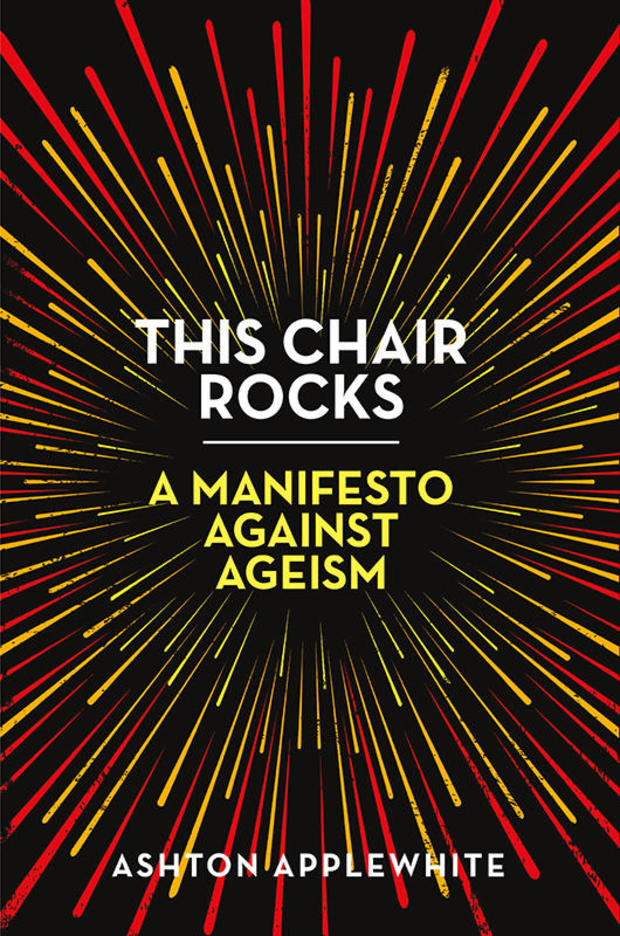Theresa Harrison’s approach to getting old never gets old. At 64, her energy is impressive, as are her skills: “I’ve become more innovative. I’ve become more creative. I’ve become more curious”
The Baltimore-based technology company she founded, Green Street Services, handles cybersecurity for the Department of Defense. And she started the company when she was in her 50s.
Speaking of startup entrepreneurs, correspondent Susan Spencer said, “The stereotype is of the hotshot 19-year-old in the garage, right?”
“That is me – just add another 30 years,” Harrison said.
But in the tech world, those 30 years often draw unwelcome questions: “I’ve been asked my age, I’ve been asked, ‘How long are you going to work? Aren’t you getting tired? Are you going to stick around?'”
“Do you feel like this has had an impact on, say, getting a contract?” Spencer asked.
“I think it does, unfortunately.”
It’s a sign of what University of Oklahoma professor Julie Ober Allen calls it “everyday ageism.”
“Can you imagine someone in their twenties or thirties or even their forties being asked those same questions?” Allen said. “And yet, for some reason, it’s socially acceptable to say those same types of things to a woman in her sixties.
“Everyday ageism refers to those sort of minor comments, interactions, exposures that suggest that aging is undesirable. It’s things like, you know, all the birthday cards making jokes about wrinkles and walkers. It’s interactions where someone assumes that an older adult can’t use their phone or other forms of technology. And it’s also when older adults tend to believe some of these assumptions and prejudices about older adults themselves.”
And everyday ageism is everywhere, said Allen, who conducted a large-scale nationwide survey to assess just how pervasive it really is. She found that more than 93% of older Americans between the ages of 50 and 80 frequently experience everyday ageism interactions and experiences.
Author Ashton Applewhite said, “We live in a culture that bombards us from childhood on, starting with children’s books, about how awful it’s gonna be to get old, how tragic to encounter any kind of incapacity. And unless we stop to question those messages, they become part of our identity.”
Getting that word out is Applewhite’s singular mission. Her book, “This Chair Rocks,” argues for fighting back.
She told Spencer, “My goal is to help catalyze a grassroots movement, like the women’s movement, to raise awareness of ageism, what it is, what it looks like, what it smells like, and what we can do to dismantle it.”
Applewhite noted an example of ageism as jokes about appearance (“It takes twice as long to look half as good”). “Anything that equates youth with better is inherently ageist,” she said.
Anti-aging products, too, like wrinkle creams. “Absolutely. I mean, it’s a multi-million-gazillion-dollar industry really designed to, frankly, encourage all of us to think that the appearance of older adults isn’t attractive.”
Spencer asked, “How do you answer when somebody says, ‘Aw, you look great for your age’?”
“Well, the only snappy answer I’ve come up with in all this time, you say, ‘You look great for your age, too!'” Applewhite laughed. “And let that sit there. Because a lot of age-based comments are often well-intended. That is intended as a compliment. But I can’t accept that compliment. It suggests that there’s a certain way you look at a certain age. And there’s no such thing.”
Even the President of the United States, who is 79, is not immune for jokes about his age. “When our president falls off his bike, because of the age group that he represents, it’s assumed to have something to do with that,” said professor Allen. “People across the country fall off their bikes all the time. But if they aren’t in that older age group, the reasoning that is sort of provided for why it happened is typically very different.”
“So, it’s very well to say, ‘Well, we have to get rid of these attitudes.’ How do you do it?” Spencer asked.
“I think the first step is increasing awareness, and it’s sort of a prerequisite,” Allen replied. “But also to really start to make the case that ageism is bad for health – and it is harmful.”
That’s right: ageism is bad for us, mentally AND physically. As a source of chronic stress, it can lead to increased risk for a broad spectrum of different chronic diseases. “We’ve also found that ageism is associated with premature mortality; people who experience more ageism are much more likely to die at a younger age,” Allen said.
Conversely, according to one study, in the Journal of Personality and Social Psychology, people with an upbeat take on getting older actually live longer – an average of seven-and-a-half years longer. And there is research that shows positive attitudes can have positive health benefits.
Theresa Harrison believes that; she says a positive mindset can yield unbelievable results, and that she and her booming business prove it. But contrary to our preconceptions about aging, it turns out she’s not unique.
Professor J. Daniel Kim, at the University of Pennsylvania’s Wharton Business School, recently conducted a massive study of successful entrepreneurs, and found they are not a kid in a garage. The average age of a successful entrepreneur? 42.
Spencer asked, “Statistically, if I’m 50 and I think about having a startup tech company, I’m more likely to succeed than if I’m 30?”
“Absolutely,” Kim replied. “Vera Wang, she was 40 years old when she founded her fashion company. Sam Walton of Walmart was 44. Bernie Marcus at Home Depot was 51 years old.”
Meanwhile, Theresa Harrison just keeps on keeping on, she says, because of her age, not in spite of it.
“You’re inspirational,” Spencer told her. “And if I ever get older, I’ll take all this to heart.”
“Please do!” Harrison laughed. “It keeps me young!”
For more info:
Story produced by Amiel Weisfogel. Editor: Mike Levine.
See also:
source https://financetin.com/fighting-back-against-ageism-cbs-news-2/financetin.com









0 comments:
Post a Comment